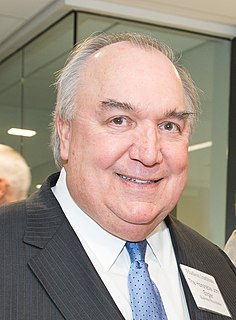A Quote by Prashant Bhushan
It is well settled in our Constitutional scheme that all Parliamentary Acts and mandates bind the executive. Any executive act, which violates any express or implied mandate of the Parliament, is unconstitutional and void.
Related Quotes
There could be constitutional problems with executive detention if it is seen to be arbitrary. I didn't actually say that the NSW Government's proposed anti-terrorism bill was necessarily unconstitutional - that was sloppy journalism - I said that executive detention may raise constitutional problems if it is seen to be arbitrary as being an invasion of the judicial function.
I cannot... perceive any ground for hoping that any practical good would, while the funding system exists in its present extent, result from the adoption of any of those projects, which have professed to have in view what is called Parliamentary Reform... when the funding system, from whatever cause, shall cease to operate upon civil and political liberty, there will be no need of projects for parliamentary reform. The parliament will, as far as shall be necessary, then reform itself.


































